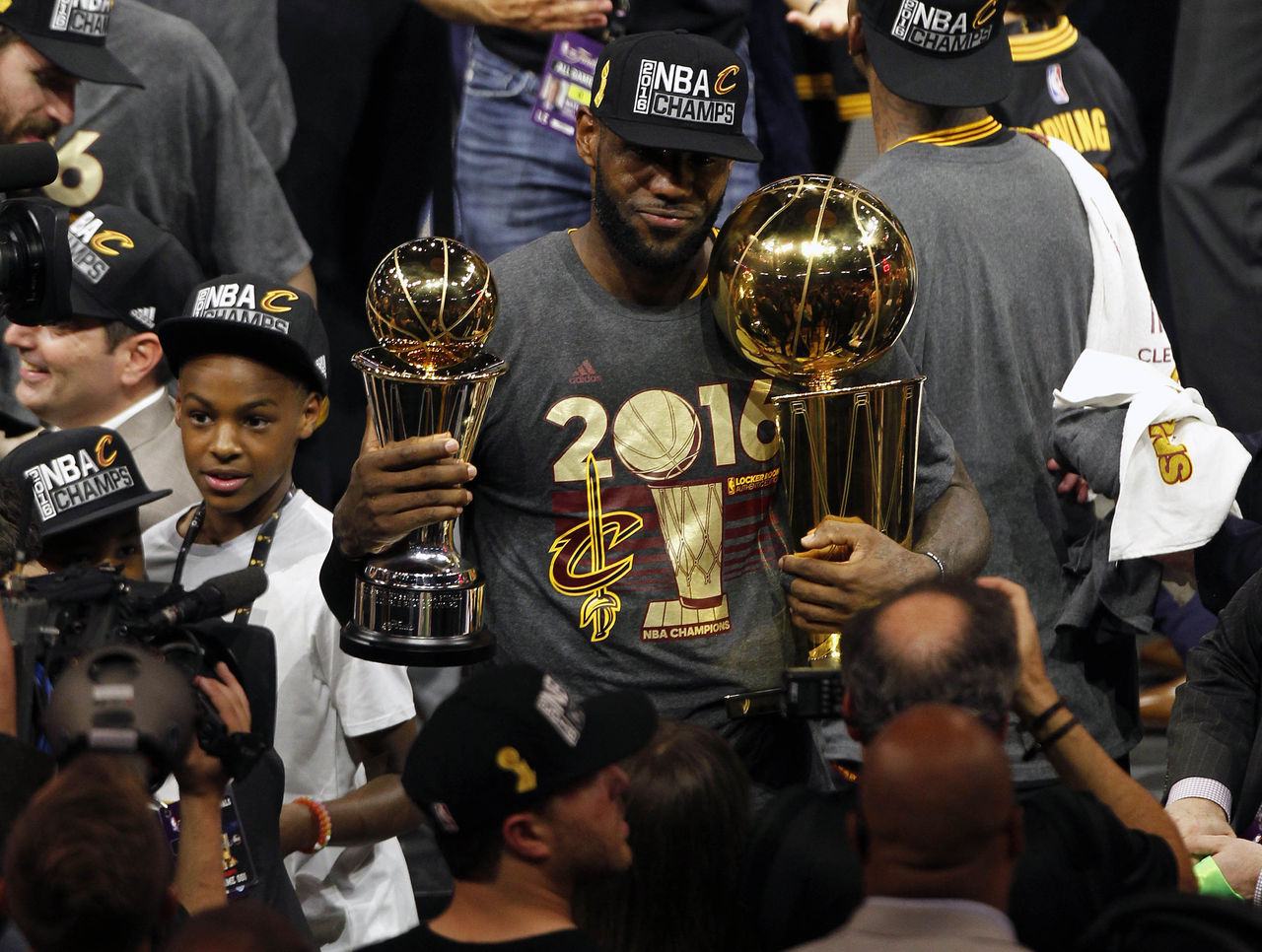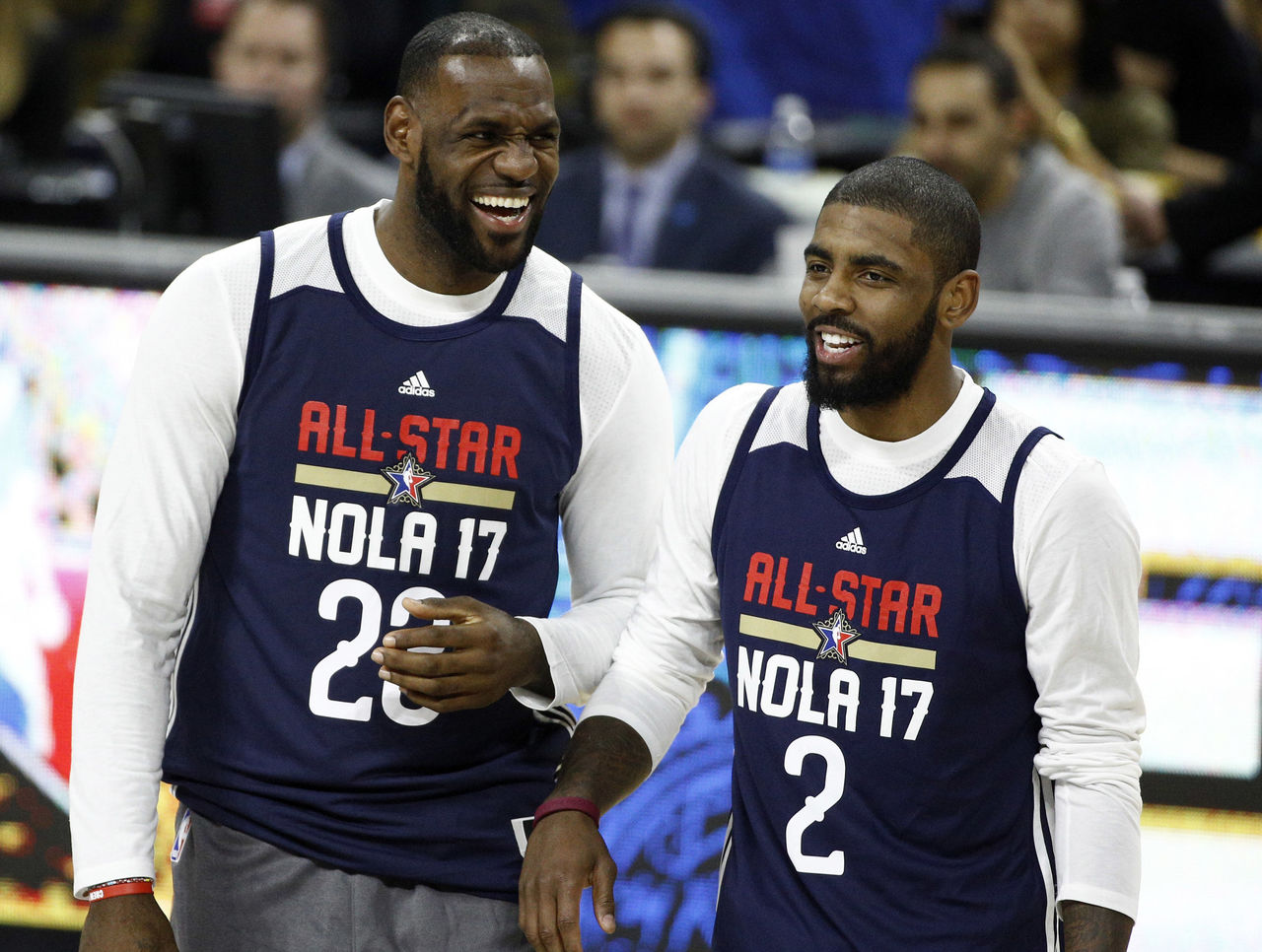Kyrie escapes LeBron's shadow to write his own legacy
If Kyrie Irving were to retire today, his resume would be set.
Irving claimed Rookie of the Year and All-NBA honors, made four All-Star appearances, captured an Olympic gold medal, became one of the most popular players in the league, earned the respect of his peers, and won a championship all before the age of 26.
He's already established himself as one of the best in the game, yet Irving made the bold decision to ask the Cleveland Cavaliers to trade him this offseason. Why?
Irving asked out so he can tear down his image as LeBron James' sidekick and rewrite his own legacy.
Escaping LeBron's shadow

Damian Lillard couldn't understand why Irving would even entertain thoughts of leaving, let alone forcibly demand a trade.
Isn't winning championships the goal? James gave Irving three straight Finals appearances. Short of pulling a Kevin Durant and joining the Golden State Warriors, sticking by James was Irving's best bet for more.
But do the ends justify the means? Perennial contention is the reward for playing with James, but what's the price?
It's not as though everything was perfect in Cleveland. Whether he means to or not, James has a way of making everything about himself. He casts a long shadow that dwarfs his entire team if not the league at large. He simultaneously drags the spotlight to wherever he goes, yet those around him can never wrestle it away.
Everything with the Cavaliers is ultimately about James. From roster decisions to the offensive system, it's all tailored for the King. Stars that play alongside LeBron must either become glorified role players waiting to be fed, as in the case of Kevin Love, or force shots when given half a chance, like Irving. Whatever choice they make will be second-guessed since James is always a plausible answer, and others are held to blame if they don't fall in line.
When the Cavaliers win it's James that commands the lion's share of credit, which is entirely fair since he's usually the main contributor. Yet this responsibility somehow ends when the Cavaliers lose. It suddenly becomes everyone else's fault. It becomes how Irving and Love don't defend, or that they're not assertive enough, or that management is too cheap to acquire talent, or the coach is doing something wrong.
Everyone takes it on the chin except for James who floats above the fray on account of his omnipotence. How could it be his fault when he's the best in the game? It creates an unspoken hierarchy that renders Irving a second-class citizen.
Even when the Cavaliers completed their exhilarating comeback in 2016, it was James who got the money quote ("Cleveland, this is for you!"), James who captured the Finals MVP, James who was featured in the two most iconic photos (one with both hands full of trophies, the other with his right hand on Andre Iguodala's layup), and James who became immortalized with his career-defining accomplishment. Never mind that Irving made the championship-winning shot, or that Cleveland would have lost the series in five were it not for Irving's 41-point explosion. The accolades and the subsequent summer belonged to James.
Irving might have won another title had he stayed on as James' sidekick, but a sidekick is all he ever could have been. He decided that wasn't enough. The ends didn't justify the means.
Writing his own legacy

Irving will stay in James' shadow even after joining the Celtics. He will remain there until he can prove himself a winning player.
Irving's reputation is that he's nothing more than a gifted scorer, as an assortment of executives told Howard Beck of Bleacher Report. The league recognizes Irving can score in high volumes on his own, but doubts that he can be the focal point of a winning system. The history there is well-known: Irving never made the playoffs before James, and the Cavaliers went 4-22 over the last three years in games where James sat.
The criticisms of Irving aren't always fair, but there's a basis. He's a disinterested defender that hunts for his own shot first before looking to create for others. Irving also has a habit of taking flashy but mostly unnecessary long twos that hinders the offense. These characteristics rarely translate to wins.
But the golden rule of sports is that winning cures everything, and Irving can change his reputation if he leads the Celtics to any meaningful success. History can be rewritten to blame Irving's early struggles on poor teammates and bad coaching if he shows he can win with a fully capable crew involving Al Horford and Gordon Hayward taught by golden boy Brad Stevens.
Either way, a player of Irving's talents deserves the chance to prove himself. The Celtics have the right infrastructure in place to highlight Irving's talents while minimizing his weaknesses. Hayward can relieve pressure as a secondary creator, Horford is a perfect pick-and-pop partner, and everyone else in the rotation is a reliable role player who can play defense. Boston should hold real ambitions to challenge Cleveland for East supremacy. Beating James would be the ultimate vindication for Irving.
Of course, Irving's legacy could also be tarnished if he fails to guide the Celtics to anything of significance. It would cement his reputation as a lone gunner who needed James to win. He might be remembered as the fool who traded championships for a chance to feed his ego.
But at least Irving was willing to take that chance to become his own man. He ultimately decided that his legacy will be about himself and not James.
(Photos courtesy: Action Images)